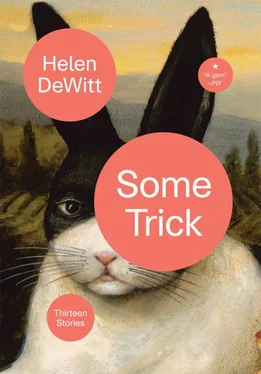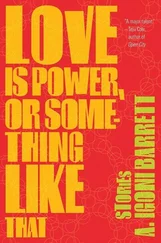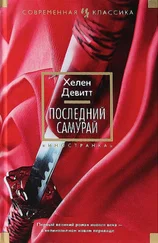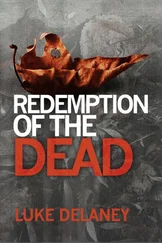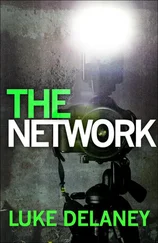At supper he displayed his broadmindedness by consuming lobster patties with evident enjoyment.
Nigel was assiduous in filling his glass with champagne.
At the second interval K agreed affably to contribute to a service apiece at Bath and at Wells. He knew printers at Golders Green who could sort out the Hebrew. Mrs B. (bless her) made all the right noises.
Gerald’s Bishop remained thankfully unapprised.
“The thing you have to understand is that I really don’t understand people.”
Gil sat on a squashy old sofa, legs akimbo, forearms on thighs. He was wearing a dark green polo shirt with a small red turtle in the place where a more fashionable polo shirt sports a crocodile. It had the trusting incomprehension of a Presidential dog.
“I mean for instance. Peter Dijkstra. There are these people, they totally say Dude , Peter Dijkstra , I love Peter Dijkstra, what a genius , but then they say, Oh, but he’s impossible , we met him for drinks in Amsterdam and he spent the whole night talking to the bartender’s dog ! And then he walked off with Jason’s brand new Moleskine !!!!”
It is not new information that he wore a dark green polo shirt with a turtle on the left breast, but sometimes we can’t be rational. If a garment quietly clothes its owner while he speaks, this cannot be uncomplaining loyalty, it cannot be touching, because this is what garments do. (What else would it do? Walk off in a huff?) And yet there was a touching loyalty in the quiet uncomplaining persistence of the turtle on the dark green breast. It had been there and it was still there.
“But see, this is what I don’t understand. Because see. Say Peter Dijkstra comes to New York and needs a place to stay, he can come to my place and stay as long as he wants and I’ll just go off and couch surf with friends to get out of his way.”
The friendly crowd let him talk uninterruptedly on. They filled the loft that would be placed so gladhandedly at the disposal of Peter Dijkstra.
“Okay, now let’s say I’m off the premises and Peter Dijkstra rents a van and loads it up with everything I own. I go back and everything is gone. Books, CDs, DVDs, TV, computer, baseball cards. Gone . And it’s not just the stuff, Peter Dijkstra went through my papers, my personal papers, and he took my diaries, and my notebooks, and my photo albums, all this incredibly personal, irreplaceable paraphernalia, he just took it. The place is empty. All I’ve got is the clothes I’m standing in, my laptop, and my iPhone. So I’m standing in this empty apartment, and I’m looking around, and the point is, I’m happy . I’m ecstatic . Peter Dijkstra — Peter Dijkstra!!!! — has appropriated this stuff, in some mysterious way my stuff is going to contribute to a book by Peter Dijkstra! I feel honored . I mean, the stuff is not contributing to a work of genius just sitting there in my apartment.”
What could anyone do but smile and feel shamefaced, crass? It was as if he was the only one in the room unconscious of the reviews, the prizes, the sales. With a little luck someone might compete for the reviews, the prizes, the sales, but who could compete for the absence of consciousness?
(The unpretentiousness of the humble turtle — it’s hard to explain how this contributed to making people feel shamefaced and crass, but it did.)
“So the thing of it is, is that Peter Dijkstra does not have it in his power to betray me, if he thinks something of mine can help with his new book he can just have it. Not only is he not letting me down , this has been a fantasy ever since I was a kid. I don’t care about the things, it just makes me happy to be part of this. So when I say a writer is a genius, what I mean is, there is nothing I won’t do for him. It’s really simple. Same thing with friends. When I use the word ‘friend’ what I mean is, ‘What’s mine is yours.’ It’s really really really really simple.”
People were laughing, smiling, drinking their beers. It was kind of upbeat to hear except that presumably, then, no one in the room was even a friend?
Rachel sat cross-legged at the other end of the squashy sofa. Silky black hair drifted over her shoulders; glass-green eyes, a bittersweet mouth endorsed uncalculating simplicity with their beauty. She wore a black t-shirt with white stick figures who said:
MAKE ME A SANDWICH
WHAT? MAKE IT YOURSELF
SUDO MAKE ME A SANDWICH
OKAY
This t-shirt too had the lovable cuteness of the First Dog.
Cissy stood at the back of the crowd in the cruel grip of consciousness.
Cissy had met Peter Dijkstra in Vienna. She had booked a room through venere.de but it had fallen through: an apologetic e-mail in exquisitely courteous German had explained that the room had gone through another booking service a few minutes earlier. She had been offered an alternative but instead had found Angel’s Place through booking.com, closer to the center and with the look, somehow, of a hi-tech monastery. The rooms were underground, with very white plaster walls, arched ceilings of bare brick, and fierce gleaming black flat-screen TVs. It was enchanting. And then there were only four rooms, so unlike the free-for-all of a hostel, it would be silent, pure, a place to read and think and write. And so she had taken the train down from Prague and checked in late and gone out in the morning for Sachertorte at Oberlaa Kurkonditorei and wandered all day.
She got back very late, close to midnight. In the breakfast room at street level a man sat at a table reading. He held a pen; a notebook was open. It was as if she had walked into a hotel and found Wittgenstein writing quietly at a table.
He looked older, wearier than in the only picture anyone had seen, though his very pale hair would not show gray. He was unassumingly dressed in the way that older Europeans are unassuming: he wore a short-sleeved blue-and-white checked shirt, well, white with pale blue double lines in a grid, and faded gray pants, and stout brown walking shoes. He did not bother to look up when she came in.
She could not bring herself to speak. She could not bring herself to go to her room. She went to the kitchen for a glass of water. She heard the scrape of his chair. When she turned she saw him standing, holding a pack of Marlboros. He went to the door and into the street.
The book, she saw, was Detlev Claussen’s biography of Adorno; he had left it open face down on the table. She would have liked to look at the writing on the page of the open notebook but she knew it would be bad. She put water into the coffee machine and slotted in a capsule of espresso.
The door opened just as the coffee began to drip into the little plain cup.
She knew she would hate herself always if she did not speak. She said, “You’re Peter Dijkstra, aren’t you? I love your work.”
He said, “Thank you.”
She said, “Do you like Vienna?”
He said, “Very much. It’s my first time, for one reason and another.” (She knew that he had been in an asylum for five years.)
He said, “They speak German like robots. It’s pleasant hearing a language mechanically spoken. I wish I had known.”
He said, “Adorno came as a young man to study with Alban Berg. Claussen is quite amusing on the subject.”
But he had picked up the book and put his pen in the fold to mark his place and closed it and he was picking up his notebook.
“Don’t let me disturb you,” she said. “I was just going to bed.”
“So am I,” he said. “That was my last cigarette for the day.”
In the morning she asked Angel if she could extend her booking for a week.
She would have liked to tell this story, she desperately wanted to tell this story and be drawn to the squashy sofa to be pumped for details, singled out for envious excited questions and exclamations and comments, enfolded in the collective embrace. But she had not been invited. Nathan had told her to come because Gil was a friendly guy, but he had not been able to introduce her while Gil was talking and now he was talking to other friends.
Читать дальше
